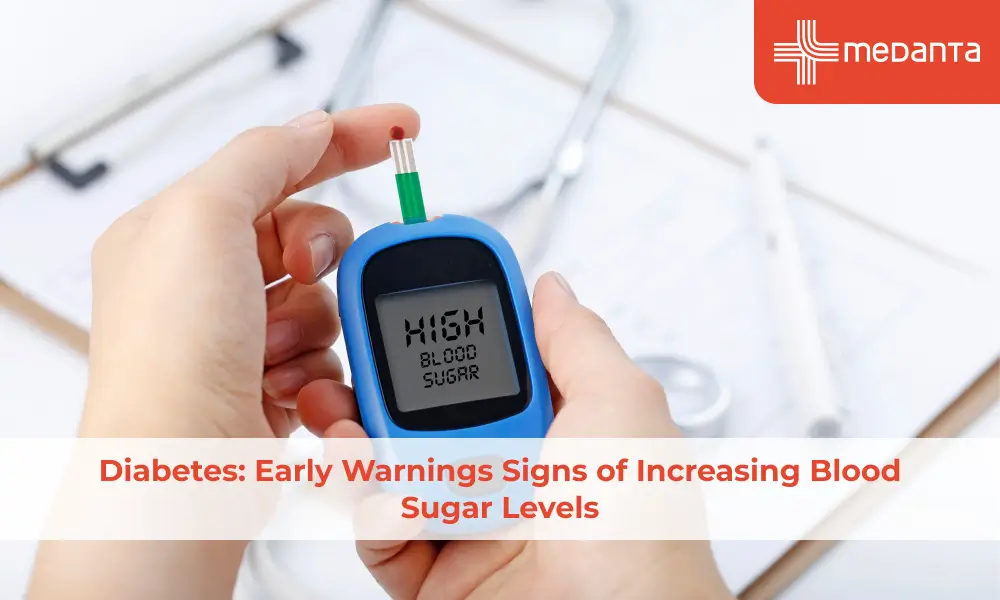Diabetes: Early Warnings Signs of Increasing Blood Sugar Levels

Diabetes has several underlying causes, but regardless of the type, it will always lead to an excess of sugar in the bloodstream. The high sugar levels can be attributed to the lack of insulin (which is required for the absorption of glucose) or the inability of insulin to absorb the sugar.
Symptoms arise depending on the elevation of sugar levels. However, there could also be cases where individuals who are diabetic don’t show any symptoms. The best way to combat this is to undergo periodic health check-ups where basic metabolic parameters, such as blood glucose levels, are checked.
Even if these parameters are normal, the individual should repeat the tests regularly as recommended by their doctor. For individuals aged 40 and above, a screening every three years is recommended. However, this frequency is higher for individuals who are overweight or have risk factors such as a sedentary lifestyle or a family history of diabetes.
Here are a few early signs and symptoms of type 1 and type 2 diabetes.
Excessive Thirst & Increased Urination
Two of the classic symptoms of diabetes are excessive thirst (polydipsia) and increased urination (polyuria). Diabetes leads to excess sugar build up in the blood, causing the kidneys to work overtime to filter and absorb all the excess sugar. If the kidneys can’t keep up, this gets excreted through your urine, dragging along other fluids from the tissues. This is the main trigger that results in frequent urination, which also leaves a person feeling dehydrated. As fluid intake to quench thirst is increased, obviously, it will lead to frequent urination.
Fatigue
Fatigue could be due to several factors that result from diabetes. One of the main factors could include dehydration from the increased urination. This affects the body’s ability to utilize the glucose reserves that are required to produce energy, resulting in tiredness.Unexplained Weight Loss
Weight fluctuations also fall under the umbrella of the possible symptoms associated with diabetes. Loss of sugar through frequent urination means loss of calories. Diabetes may also keep the sugar from being used by cells, leaving a person in a constant state of hunger. The combined effect is potentially rapid weight loss.Blurred vision
The high levels of sugar in the bloodstream often pull out fluid from the tissue, including the lenses of the eyes. If left untreated, diabetes can cause new blood vessels to form in the retina, damaging the already existing ones. For most people, the early changes do not manifest as vision problems. But if these changes progress undetected they can lead to vision loss and permanent blindness.Slow Healing Sores Or Frequent Infections
It is commonly observed that people suffering from diabetes are more prone to infections. Although there is no immediate research to prove the link, the reason behind this could be the high levels of blood sugar which hampers the body’s natural healing process, thus reducing one’s ability to fight infections. In women, bladder and vaginal infections are especially common.
Swollen Gums
Since diabetes increases the chances of infection, there is a high risk of developing an infection in the gums and the bones that hold the teeth in place. Typical symptoms may include receding or loose gums and sores or pus formation in the gums.
Understanding possible diabetes symptoms can lead to early diagnosis, treatment and a lifetime of better health.






